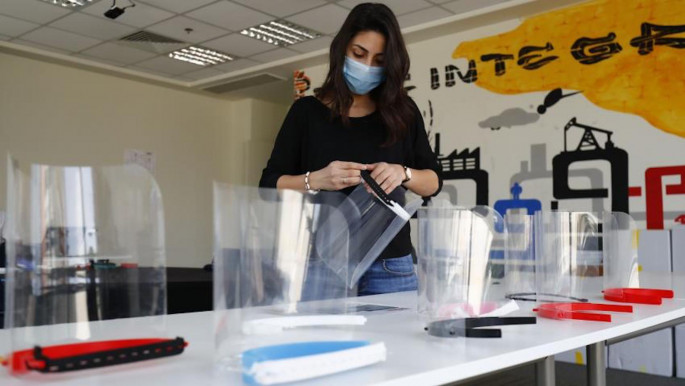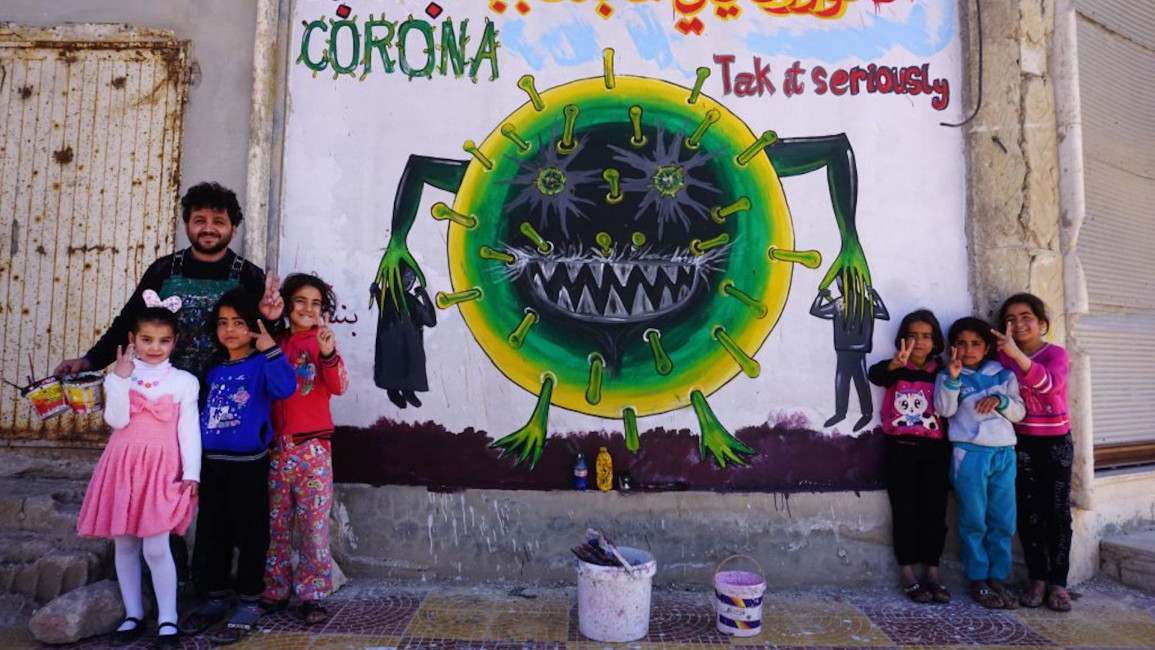Coronavirus Pandemic: Positive stories of resilience and bravery from the Middle East this week
Countries across the Middle East, as well as the world, are relaxing coronavirus measures and easing lockdowns after observing a drop in new reported cases.
After gaining some control over the Covid-19 outbreak, the Middle East has seen some positive advancements.
|
The machine, which is mounted on wheels, is capable of taking pulses of patients and checking temperatures and blood oxygen levels, according to AFP.
It also allows for virtual communication between patients and nurses, doctors and patients' relatives.
The virtual communication allows patients to see the faces of their caregivers on a screen, otherwise impossible with heavy personal protection gear worn by hospital staff when in contact with covid-19 patients.
"It allows a reduction in contact with the sick and therefore the risk of contaminating personnel," Nawel Besbes Chaouch, a doctor leading the pulmonary department at the Abderrahmane Memmi hospital in Ariana told AFP.
The robot is designed and produced in Tunisia by Enova, a start-up based in Sousse.
2) Gaza factories roar back to life to make Personal Protective Equipment
For the first time in years, sewing factories in the Gaza Strip are back to working at full capacity, producing masks, gloves and protective gowns, the Associated Press reported.
"It's a rare economic lifeline in the coastal territory," the report said. Gaza has been blockaded by Israel and Egypt since the Hamas militant group seized power from rival Palestinian forces in the strip in 2007.
The blockade, and three wars between Hamas and Israel, have lead to nearly 50 percent unemployment in the strip.
So far, Gaza appears to have been largely spared from the coronavirus pandemic, the AP reported, with only 17 cases confirmed, all found in people returning from abroad and placed in quarantine.
Lebanon's Anti-Racism Movement (ARM) is assisting families of migrant workers with basic necessities in Lebanon, after the government failed to integrate the group in national coronavirus aid plans.
|
The non-partisan movement, which mainly combats racist discrimination and abuse in Lebanon against migrant workers, their children and Sudanese refugees, is now providing rapid food and housing assistance to help migrant workers during the coronavirus lockdown.
The spread of the virus to Lebanon and the preceding economic crisis – now characterised by an all-time-high currency depreciation and a shortage of hard currency – has hit some 250,000 migrant workers employed in Lebanon especially hard.
For food needs, the ARM is cooperating with the local non-profit People's Solidarity to document needs and collect donations. Donation boxes are planned to assist over 2,000 families for half a year, Zeina Ammar, ARM Advocacy and Communications Manager, told The New Arab.
Read more: Lebanon's Anti-Racism Movement is a lifeline for vulnerable migrant workers during coronavirus
A new refuge for women has opened following a surge in reports of domestic violence in Tunisia since the start of the Covid-19 lockdown.
The new centre, offering accommodation for female victims of domestic abuse, was set up by Tunisia's Ministry of Women, Family, Children and Elderly Affairs in April.
With technical and financial assistance offered by the United Nations Population Fund (UNFPA) Tunisia, the centre is intended to help prevent transmission of the novel coronavirus.
The initiative was prompted by a new challenge posed by the health crisis - how to accommodate abused women in existing shelters without risking infecting those who already live there. In the time of a pandemic, these fully occupied centres are now wary of receiving new women.
Read more: 'Violence is a virus': Tunisia opens new women's shelter as domestic abuse surges during lockdown
5) Egypt tech firm prints coronavirus face shields to be donated to medics
A digital design company started 3D printing face shields in Egypt, where many healthcare workers have to provide their own protective gear.
Giza Systems uses digital printing technology mainly to produce assistive devices for people with disabilities, working in a lab called Project Nitrous.
 |
|
Newly-fabricated face shields assembled at Giza Systems [Getty] |
With the arrival of the novel coronavirus, which has now infected 5,895 in Egypt, resulting in over 400 deaths, the company shifted its focus to match the arising need for Personal Protective Equipment.
According to the AFP, the face shield that can be printed in plastic, cut out by laser and simply assembled. Giza Systems will deliver the devices to thousands of doctors free of charge.
"You feel safe wearing it and the design is sleek," Diwer told AFP. "It's easier than wearing a set of goggles and can be easily cleaned."
The firm is now distributing around 2,000 face shields a day to medics nationwide and has partnerships with around 25 public and private hospitals, a report by the AFP said. A group of volunteers are helping pack the equipment for shipment.



